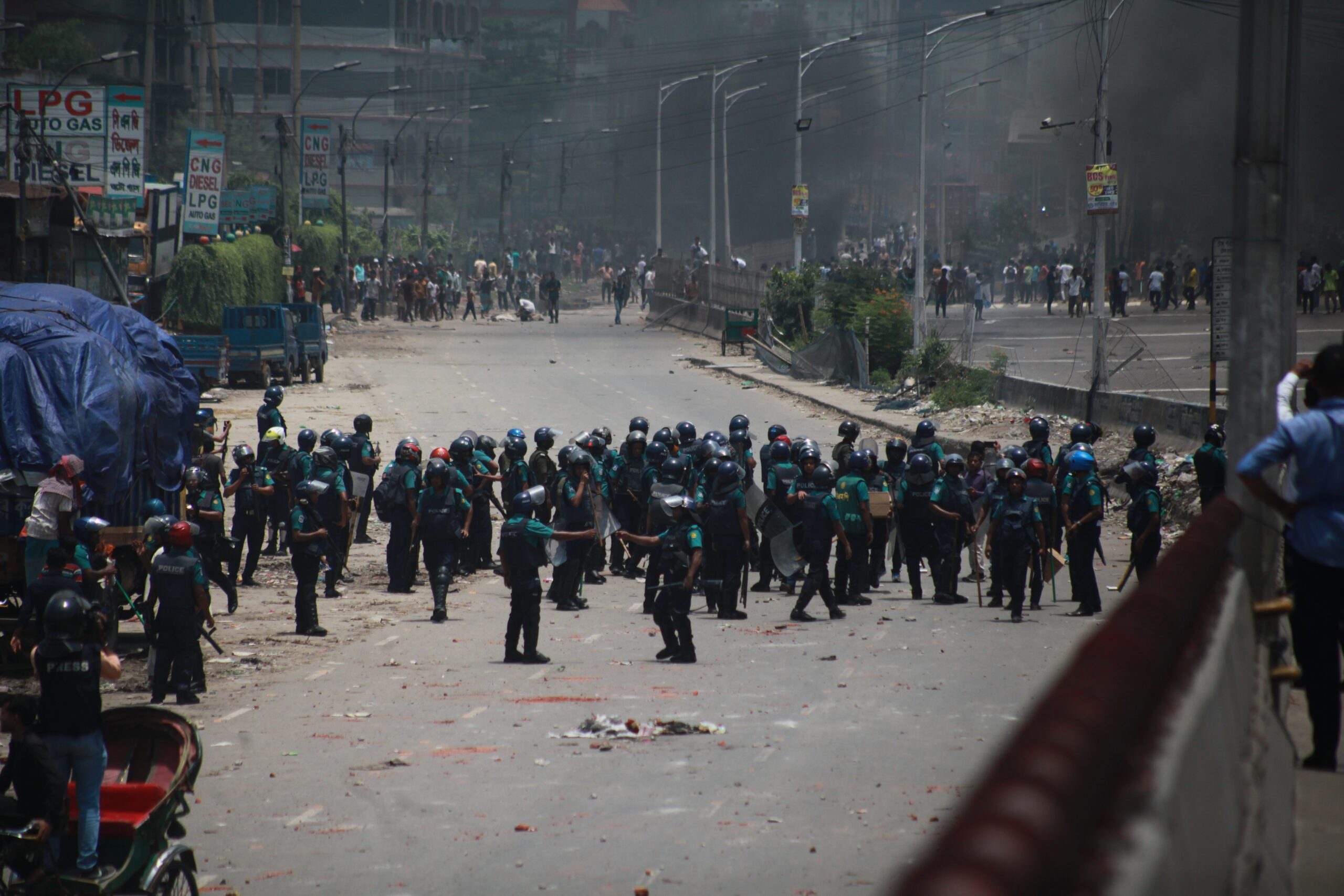Tensions remain high following the violent repression of the student movement which, beyond the problem of access to the civil service, is aimed at the regime of the ‘Iron Begum’ Sheikh Hasina.
The revolt that has shaken Bangladesh for almost two weeks continues to challenge the regime of Prime Minister Sheikh Hasina, after a brief lull. On Saturday, July 27, the student protest movement threatened to resume demonstrations on Monday if its leaders, some of whom had been abducted from the hospital where they were being treated for injuries, were not released.
The crackdown on the student revolt, which was triggered in Bangladesh’s major cities by the introduction of quotas for public sector jobs that favor the ruling party, has left at least 200 people dead. Thousands of people, protesters as well as critics of the government, have been arrested.
Under pressure, the Supreme Court reduced the proportion of government jobs reserved for descendants of the country’s “freedom fighters” from 30% to 5%. In the early 1970s, these figures had fought for independence against the Pakistani dictatorship that was entrenched in the country, which had been known, since the partition of India, as “East Pakistan.” These quotas are tailor-made for the members of the Awami League, the party of the prime minister, whose father was Mujibur Rahman, the “father of the nation,” who was assassinated in a military coup in 1975.
Yet beyond this specific point of obsession, the students’ anger – with its cries of “down with the dictator!” – has been focused on Hasina, 76, who has been in power for 15 years. In the eyes of a growing number of Bangladeshis, she now embodies authoritarianism, arbitrariness and political violence. In short, the drift towards a system that is now democratic in name only.
Evaporated checks and balances
It’s far too early to imagine that the regime established by the “Iron Begum,” a word meaning “queen” or “princess,” will be replaced by a system of parliamentary democracy. Hasina controls the various levers of the state, starting with a justice system that does her bidding. All checks and balances have evaporated over the years. The largest opposition party boycotted the last elections in January, giving Hasina an easy path for a fourth consecutive term (the fifth in total).
Hasina is now the focus of the youth’s frustration, despite the country’s remarkable economic progress over the past decade. For the privileged people who are able to study, the prospects are hardly rosy: 40% of young people between the ages of 15 and 24 are unemployed. That leaves the civil service, which is partly blocked by the priority given to the descendants of another century’s “resistance fighters.”
Clearly, the concession announced by the Supreme Court was not enough to put an end to student anger. Despite a certain return to normal life, the restoration of the internet and the partial lifting of curfews in paralyzed towns, student leaders are demanding redress and the resignation of the hated “begum.” Never before has she faced such a challenge. Given her temper, it is unlikely that she will respond by taking the necessary decisions, reversing the autocratic trend and establishing a genuine democracy in a country of 171 million inhabitants with a long tradition of political violence. Hasina, a resolutely secular Muslim, would do well to be wary of the consequences of the carnage: The Islamists could reap what she has sown.
source : lemonde

